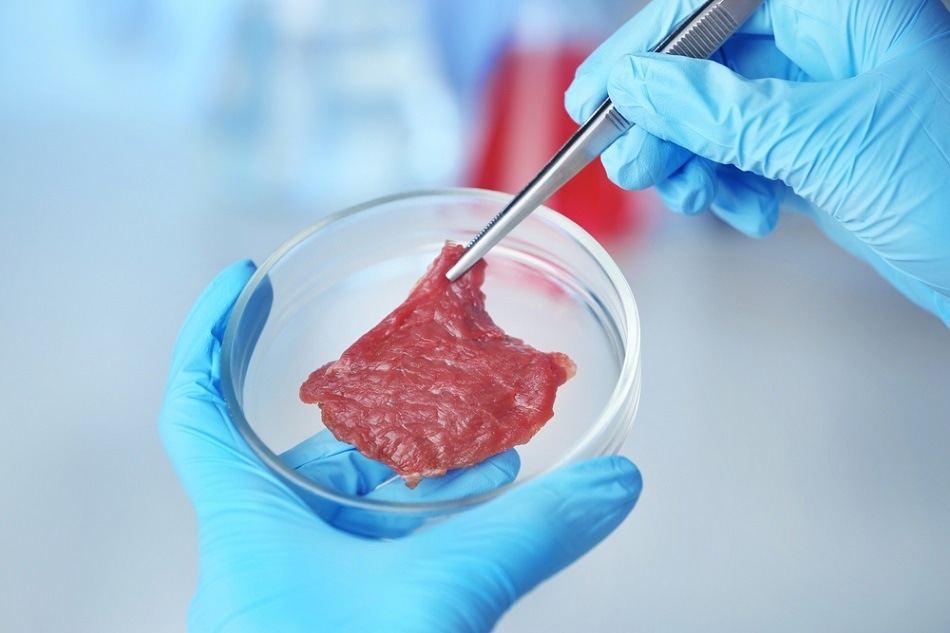
As the global population continues to rise at a staggering rate, the subsequent global demand for meat and other food products is expected to increase by more than two-thirds in the near future.
While meat provides individuals with a good source of protein and other essential nutrients, it is often high in saturated fats and cholesterol that can be associated with increasing the population’s susceptibility to diseases such as heart disease, stroke, type II diabetes, obesity and certain cancers1.
Additionally, the large-scale meat production that occurs around the world is also associated with certain environmental implications including climate change and significant water and land use requirements. In an effort to simultaneously address these possible public health threats, as well as protect animal welfare and provide secure food options, a team of Researchers on August 6th 2013 from Maastricht University produced the first lab-grown burger that was fully cooked and eaten.
To produce cultured beef, Researchers first harvest cells from any area of interest from a living cow, which is a completely painless process. The team of Scientists then culture these cells and provide them with the same nutrients and viability requirements that would be given to an animal on a farm, thereby creating the muscle tissue that makes up the meat that we know so well today.
As the cells grow within the cultured media they form strands, and of these approximately 20,000 strands are needed to create enough meat to construct an average sized hamburger2. While Mark Post’s burger by Maastricht Researchers was originally valued at approximately $330,000, American company Memphis Meats has focused their latest endeavors on producing similar lab-grown meat products that begin at $18,000 per pound.
Despite the astonishingly high cost associated with lab-fabricated meat, the possible advantages associated with its production are impressive. Aside from the obvious advantage of possibly eliminating the need to slaughter animals completely in the future, there is also a very real chance that the significant environmental impact of meat production could also be reduced.
Today, current meat and dairy production methods utilize approximately 70% of the global water consumption, 38% of global land use and release 19% of the world’s greenhouse gas emissions3. Similarly, lab-grown meat could also prevent the spread of fatal foodborne infections, such as E. coli and Salmonella, which account for approximately 76 million illnesses and 5,000 deaths each year in the United States alone4.
The successful production of sterile cultured meat products, which would be completely free of such harmful bacteria that are associated with food-related infections, could be a revolutionary way to provide the necessary nutrients and food supplies to people of the world without the possibility of any adverse effect. Despite its apparently promising future in the food industry, there remains a serious concern over the possible acute and chronic effects that could result from the consumption of such specifically tailored food products.
Additionally, at its current cost of $18,000 per pound, Researchers must investigate ways in which they can produce lab-grown meat at a large scale, otherwise its feasibility for public purchase and consumption will be limited by its price tag that will be impossible to afford for the average individual.
Further studies must be conducted to evaluate the possible risk associated with the human consumption of lab-grown meat products in order to better understand its possible risk posed to the affected population. Until these studies are done, the reality of a world where meat products require no loss of animal life and can be produced solely by laboratory specialists is not exactly close, but it does not appear to be too far into the future either.
Image Credit:
Africa Studio/ Shutterstock.com
References:
- “Health & Environmental Implications of U.S. Meat Consumption & Production” – Johns Hopkins Bloomberg School of Public Health
- “What is Cultured Meat” – Maastricht University
- “Lab-Grown Meat May Save a Lot More than Farm Animals’ Lives” – NBC News
- “Food-Related Illness and Death in the United States” – Centers for Disease Control
Disclaimer: The views expressed here are those of the author expressed in their private capacity and do not necessarily represent the views of AZoM.com Limited T/A AZoNetwork the owner and operator of this website. This disclaimer forms part of the Terms and conditions of use of this website.